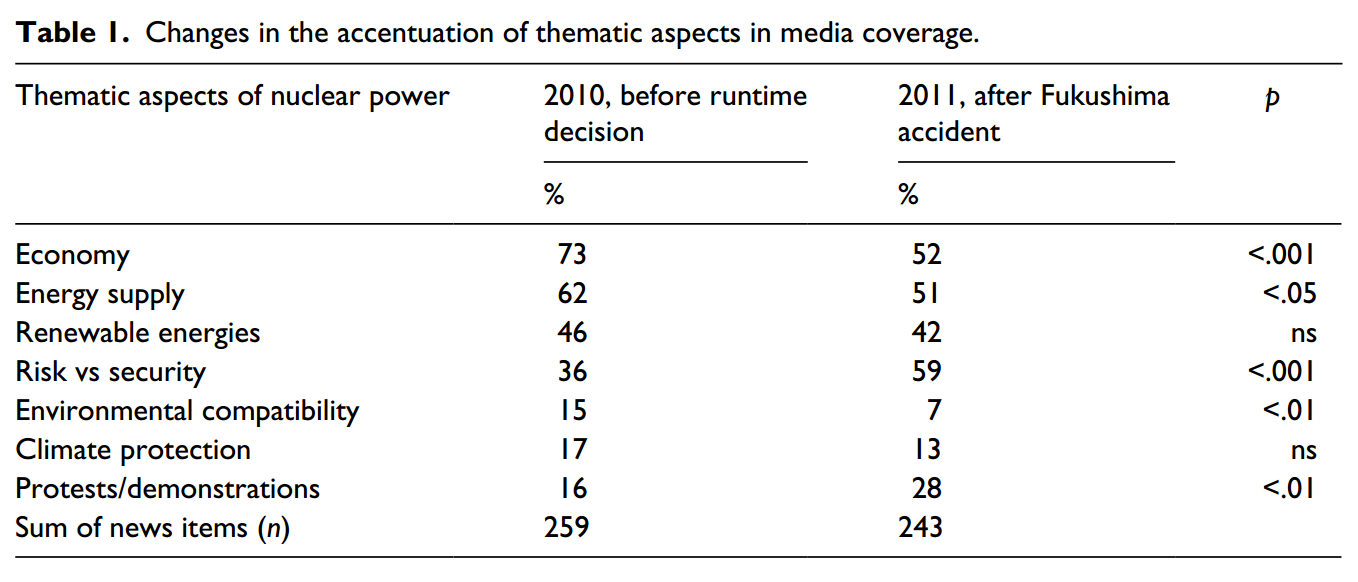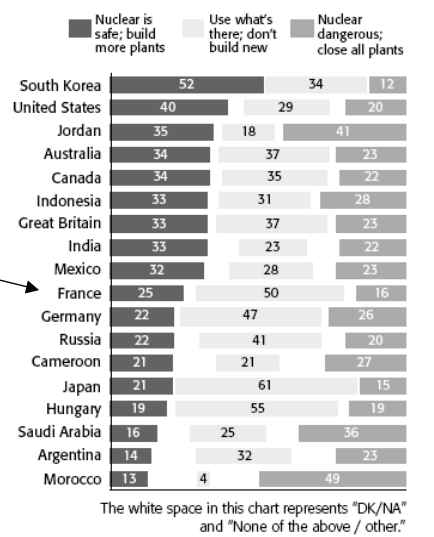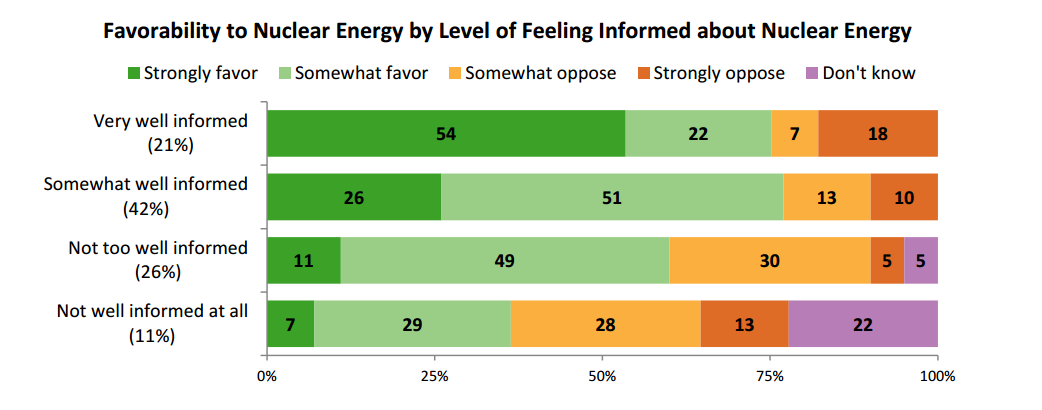Nuclear energy has always been one of the most divisive
sources of energy; with support depending on the country, how well informed the
public are, and the events occurring around the world at the time. There are a
number of factors that influence the public such as nuclear waste, security,
cost of energy, reliance, safety, the media, climate change and many more.
Chernobyl
There isn’t much data on public opinion prior to the
Chernobyl disaster; but in a poll conducted by Harris in the US in 1975, 63%
supported building more nuclear power plants (Rosa et al., 1994). This dropped however, to 44% in
1979 after the Three Mile Island accident, and further still to 34% after
Chernobyl in 1986 (Rosa et al., 1994). However, the American public recognised nuclear energy as a
potential large scale energy source, as in a poll by Cambridge during the late 1980’s;
67%-78% said that nuclear energy was a good or realistic choice for the future (Rosa et al., 1994). In West
Germany, one of the closest Western nations to the Chernobyl disaster, polls
suggested around 15% supported a withdrawal from nuclear power prior to the
disaster; after the disaster, this rose to 37% the following year, and 65% the
year after that (Peters et al., 1990). It is noted however, that even after the Chernobyl disaster,
parties who supported withdrawing from nuclear power (along with public
opinion) didn’t have much, if any, increase in support in Germany’s parliamentary
elections the following year, suggesting that although there was a concern, nuclear
energy is not something at the forefront of the public minds.
After the Fukushima disaster in 2011, the German parliament
chose to phase out nuclear power (Dorothee et al., 2016). This was in direct contrast to a decision
made 6 months earlier to extend the nuclear power plant run-time. This would
mean that Fukushima had a direct effect on the decision of the German
parliament; but perhaps this was also influenced by the medias reporting? Prior to the
Fukushima disaster, Nuclear power was a dividing issue in Germany, with 43% in
support and 37% opposed. A few days after the accident, global support fell
from 57% to 49% which is to be suspected (Dorothee et al., 2016). News in Germany in the following year
also changed dramatically; with the economical (-21%) and energy aspects (-11%)
of nuclear energy seeing much less coverage, and on the other side, a large
increase in the coverage of the risks of nuclear (+23%) and the demonstrations (+12%)
against (Dorothee et al., 2016).
 |
| Level of different themes represented in the news (Dorothee et al., 2016) |
Present
 |
| Global public opinion on Nuclear Issues (Mycle Schneider 2009) |
Support is also dependent on the level of knowledge around the subject. When respondents were informed about the positive impacts of climate change, support for nuclear expansion increased on average by 10% (OECD 2010). This is mirrored in the US, with 60% either slightly opposing or slightly in favour of nuclear energy; when they feel very well informed, 54% are strongly in favour with another 22% somewhat in favour (Bisconti Research 2016). Even a moderate amount of knowledge on the subject, leads to a 77% in favour for nuclear energy.
 |
| (Bisconti Research 2016) |
In conclusion, support for nuclear energy has fluctuated
greatly over the years, in response to the disasters and development in the
world. Prices of fuel, level of education and even gender can have an effect on
support towards nuclear energy. What can be seen though is that when the advantages
are explained to people, especially involving climate change, the public are
much more willing to get behind the idea of nuclear energy; it just depends if they think those benefits outweigh the risks.

No comments:
Post a Comment